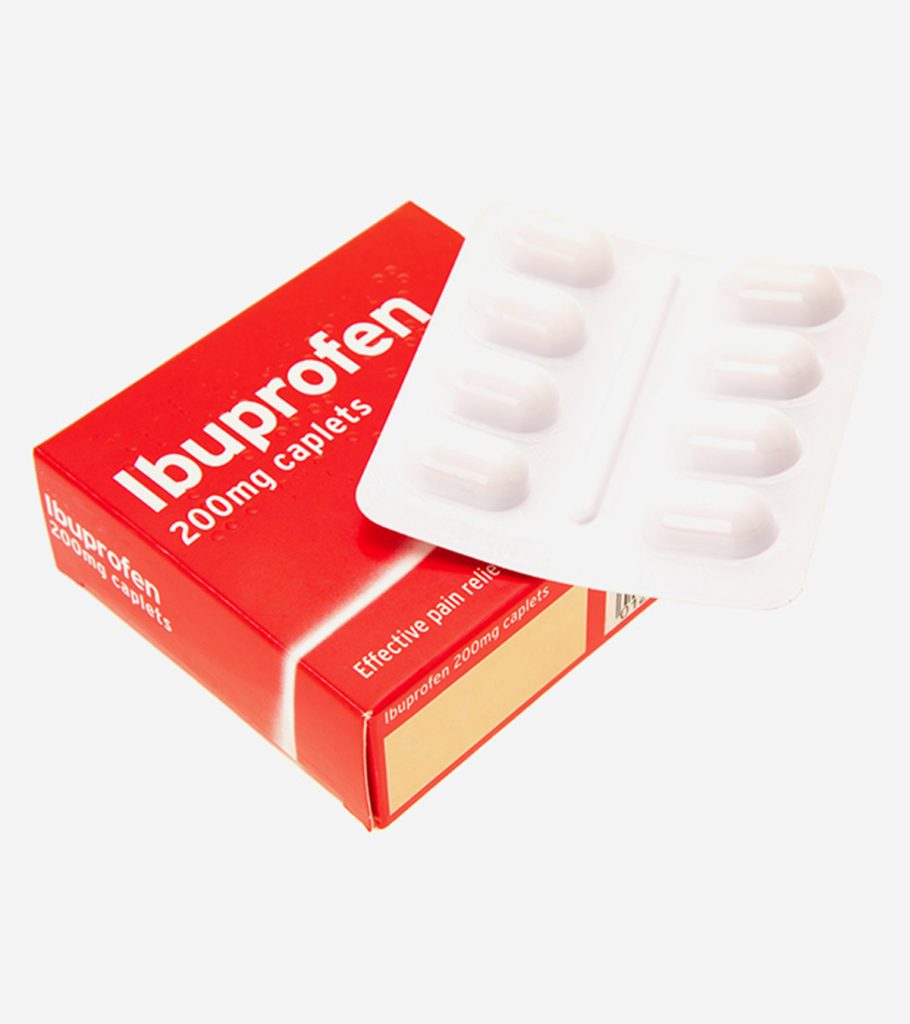Ibuprofen is an over-the-counter (OTC), non-steroidal anti-inflammatory drug (NSAID) that people use to alleviate pain and high body temperature or fever. While the drug is generally considered safe, you may wonder if consuming ibuprofen during breastfeeding is safe for you and your baby.
Read on to get the answers to all your queries regarding the safety and side effects of ibuprofen for breastfeeding women. Also, know the amount of ibuprofen safe for pregnant women, conditions when nursing mothers should avoid it, and tips to safely use ibuprofen when breastfeeding.
What Is Ibuprofen?
Ibuprofen is a nonsteroidal anti-inflammatory drug (NSAID) that helps reduce pain, inflammation, and fever (1). The medicine is sold under the popular brand names Advil and Motrin. It is also prescribed for conditions such as arthritis and severe menstrual pain.
Ibuprofen mostly has non-prescription usage and can be purchased over the counter for treating a range of issues from reducing respiratory inflammation during cold, alleviating a headache, and providing relief from a toothache.
The extensive uses of ibuprofen and easy availability make it one of the ‘essential medicines’ for pain relief according to the World Health Organization (2). So the chances are that you could take this medicine at least once during your lactation period. That brings us to the important question.
Is It Safe To Have Ibuprofen While Breastfeeding?
Yes. It is safe to take ibuprofen when you are breastfeeding, provided you don’t have asthma or stomach ulcer (3). The medicine is on the American Academy of Pediatrics’ list of drugs suitable for breastfeeding moms and has no known adverse effects on the baby’s health (4).
Ibuprofen is often the preferred NSAID as it is highly protein-bound and is not easily transferred into breast milk (5). Ibuprofen is the only nonsteroidal anti-inflammatory drug that is safe for use among children and is also given to infants above the age of six months (6) (7).
Concentration Of Ibuprofen Transferred To The Breast Milk
A study revealed that four doses of as high as 400mg each of ibuprofen in a day (1600 mg/day) led to less than 1mg of the drug passing into the breast milk (8). The amount is highly insignificant considering the ingested dosage. But in some cases, even small quantities of medicine in breast milk composition could become a concern.
Does Ibuprofen Have Any Side Effects On Breastfeeding Babies?
Ibuprofen is unlikely to have any side effects on infant health, as the medicine passes into milk in negligible quantities (9). Research states that ibuprofen’s strong affinity towards blood plasma proteins reduces its ability to bind with milk proteins, minimizing the chances of it passing to the baby. It is 99% protein-bound and remains in your blood, with just an insignificant amount diffusing into the breast milk (5).
If any, the general side effects of ibuprofen are similar to what can occur when there’s direct infant exposure to it (10).
Side effects include
- Nausea
- Drowsiness
- Headache
- Heartburn
- Diarrhea
- Bloated abdomen
Severe side effects could be
- Vomiting
- High blood pressure
- Fever
- Severe stomach pain
- Development of rashes on the body
- Drowsiness and extreme lethargy
- Blood in the urine
- Difficulty in breathing
The clinical guidelines from the American Academy of Family Physicians states that adverse side effects mostly occur due to prolonged maternal use of ibuprofen (3). Make sure you only have the medicine in prescribed doses.
How Much Of Ibuprofen Is Safe For A Breastfeeding Mother?
The maximum dosage of ibuprofen depends on whether you buy an over-the-counter version or one prescribed by the doctor.
Over-the-counter ibuprofen: If you have over-the-counter ibuprofen, then the dosage is likely to be 200mg per tablet. You can have a maximum of two 200mg tablets every 4-6 hours. If you have two pills at a time, then let there be a gap of six hours. The maximum limit of ibuprofen for adults is 1200 mg in 24 hours, which is no more than six 200 mg tablets in a day (11).
Also, check the label for the maximum drug dosage and timing as suggested by the drug manufacturer. Limiting the dosage to 1200mg a day is likely to release less than 1mg of ibuprofen into the human milk, which will not harm the baby (8).
Prescription ibuprofen: Doctor-prescribed tablets are likely to contain 200mg to 800mg of ibuprofen. The dosage frequency entirely depends on the doctor’s suggestion. The maximum limit of prescription ibuprofen is 3200 mg per day, which is a maximum of four 800 mg tablets in a day (12).
Doctors usually do not prescribe high doses of ibuprofen for lactating mothers and may stick to a maximum of 1600-2400mg per day. You may also be prescribed a slow-release version of ibuprofen to be taken once or twice a day, with a 10-12 hours gap between two doses (13).
Overdosing is highly unlikely if you take prescribed ibuprofen. Avoid using OTC ibuprofen, but if you have to take it, stick to the suggested limit. Consult the doctor for alternatives, if the drug doesn’t provide relief as expected.
When Should A Breastfeeding Mother Avoid Ibuprofen?
Avoid taking ibuprofen without a doctor’s consent if (14):
- You or your baby is taking another NSAID or other medicines such as acetaminophen (paracetamol). These medicines have similar effects as ibuprofen and should not be taken together to avoid overdosing.
- You or your baby have heart or kidney problems. Ibuprofen can be taxing to the kidneys and also may cause high blood pressure, which affects the heart.
- You or your baby have a stomach ulcer, which could exacerbate due to ibuprofen use.
- You or your baby have asthma or any other allergic condition.
- The baby has acid reflux or gastroesophageal disease (GERD). Heartburn is one of the side effects of ibuprofen and babies with GERD could be more sensitive to maternal ibuprofen usage.
- Your baby has a history of allergic reactions to maternal medication and food consumption.
Taking precautions when using medications can help minimize related risks to maternal health.
Tips For Ibuprofen Usage While Breastfeeding
- Avoid mixing too many medicines, since ibuprofen could be a part of other medications as well. For example, ibuprofen is present in certain medications for a headache and cold. So taking them both together could mean exceeding the suggested daily limit of ibuprofen dosage.
- Do not take ibuprofen for more than ten days, unless the doctor may prescribe it for any specific reason.
- Do not take more than what is needed to feel better. If you start feeling better after a couple of doses, then stop taking it any more. Use of alternative methods, such as hot water compress, pain relief balms etc, along with the medicine to feel better and reduce the dependency on the drug.
- In the case of side effects either in yourself or the baby, then stop usage and visit the doctor.
It is safe to take ibuprofen during breastfeeding for pain relief benefits. However, you may consult a doctor and stick to the prescribed doses to avoid adverse effects on your baby. Also, it is necessary to inform your doctor if there are any side effects of this analgesic on you or your baby. The composition of ibuprofen prevents it from reaching breastmilk in higher quantities. It is also essential to ensure that you take ibuprofen and not combination medicines containing ibuprofen since the other ingredients may not be safe for lactation.
Key Pointers
- Ibuprofen is safe to take while breastfeeding unless you have asthma or stomach ulcer.
- Common side effects of ibuprofen include nausea, vomiting, headache, diarrhea, heartburn, and fever.
- The recommended maximum daily dosage of ibuprofen is 1200 mg within 24 hours.
- Do not take ibuprofen if you are already taking other NSAIDs or acetaminophen, or have heart or kidney problems, stomach ulcers, asthma, or allergies.
- To use ibuprofen safely while breastfeeding, limit use to 10 days, use only as needed, and monitor for side effects.














